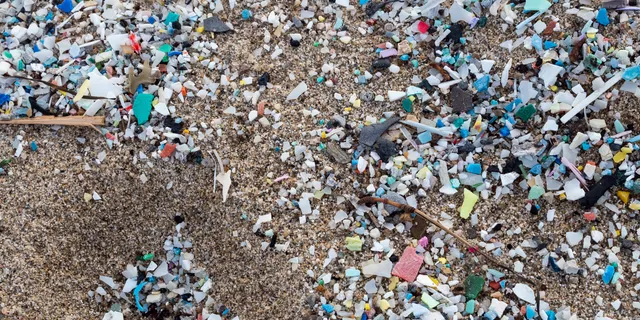Plastic pollution is a significant environmental concern in the state of Florida, posing threats to its diverse ecosystems, marine life, and tourism industry. The state’s extensive coastline and abundant waterways make it particularly vulnerable to the impacts of plastic pollution. Several factors contribute to the issue, including improper waste management, littering, stormwater runoff, and the pervasive use of single-use plastics.
Florida’s coastal areas are heavily impacted by plastic pollution, with plastic debris washing up on its beaches and posing risks to marine life. The accumulation of plastic waste threatens the health of marine ecosystems, as marine animals can mistake plastic items for food or become entangled in discarded fishing gear and other plastic debris. This has detrimental consequences for the state’s vibrant marine biodiversity and the fisheries that depend on it.
Improper waste management and littering exacerbate the plastic pollution problem in Florida. Inadequate disposal practices, including illegal dumping and improper waste segregation, can result in plastic waste finding its way into rivers, streams, and ultimately, the ocean. Furthermore, littering of plastic bottles, bags, and other items in public spaces, parks, and beaches contributes to the proliferation of pollution throughout the state.
Stormwater runoff also plays a role in transporting plastic debris from inland areas to coastal regions. During heavy rainfall, stormwater can carry plastic waste from streets, sidewalks, and drainage systems into rivers and ultimately the ocean. This highlights the interconnectedness of inland and coastal areas in terms of plastic pollution, emphasizing the need for comprehensive waste management strategies that address the issue holistically.
The pervasive use of single-use plastics, such as plastic bags, straws, and food containers, is a significant contributor to plastic pollution in Florida. These items are frequently discarded after a single use, leading to a massive accumulation of plastic waste. To combat this issue, several cities in Florida, including Miami Beach and St. Petersburg, have implemented or considered bans on single-use plastics, aiming to reduce plastic consumption and encourage the use of more sustainable alternatives.
Florida’s tourism industry, which heavily relies on its pristine beaches and marine attractions, is also impacted by plastic pollution. Unsightly plastic debris on beaches can deter tourists and have adverse economic effects. Furthermore, the degradation of marine ecosystems due to plastic pollution can undermine the recreational activities, such as fishing, diving, and wildlife observation, that attract visitors to the state.
To address plastic pollution in Florida, various initiatives have been implemented. These include beach clean-up campaigns, educational programs, and efforts to promote recycling and responsible waste management. Non-profit organizations, local governments, and community groups have been instrumental in organizing clean-up events, raising awareness, and advocating for policy changes that aim to reduce plastic waste and promote sustainable alternatives.
Collaboration among stakeholders is key to tackling plastic pollution effectively in Florida. This involves partnerships between government agencies, environmental organizations, businesses, and the public. By working together, these stakeholders can develop and implement comprehensive strategies to reduce plastic consumption, improve waste management infrastructure, and promote sustainable practices across the state.
How to rent a dumpster in Panama City, FL
Renting a dumpster in Panama City, FL, is a straightforward process that requires a few essential steps. Whether you are renovating your home, cleaning out a large space, or undertaking a construction project, renting a dumpster can help you efficiently manage your waste. Here’s a guide to renting a dumpster in Panama City:
Determine your needs: Assess the size and type of dumpster you require based on the scope of your project. Different projects may require different sizes, ranging from 10-yard dumpsters for smaller clean-outs to 40-yard dumpsters for large construction projects.
Research dumpster rental companies: Look for reputable dumpster rental companies operating in Panama City. Read customer reviews, compare prices, and inquire about their availability and rental terms. Popular companies in the area include Waste Management, Republic Services, and local providers like Panama City Dumpster Rental.
Contact rental companies (like this website): Reach out to the selected rental companies to inquire about availability, pricing, and rental duration. Provide them with details about your project, including the type of waste you will be disposing of and the estimated duration you will need the dumpster for.
Obtain necessary permits: Depending on the location where you plan to place the dumpster, you may need to obtain permits from the city or homeowners’ association. Contact the appropriate authorities to inquire about any permits required for placing a dumpster on public or private property.
Determine drop-off location: Choose a suitable location on your property or project site for the dumpster to be dropped off. Ensure that there is enough space for the delivery truck to maneuver and that the location is easily accessible for loading and unloading.
Schedule delivery and pickup: Once you have selected a rental company and determined the drop-off location, schedule the delivery and pickup dates for the dumpster. Coordinate with the rental company to ensure that the dumpster is delivered and picked up at convenient times that align with your project timeline.
Understand rental terms and restrictions: Familiarize yourself with the rental company’s terms and conditions. Pay attention to weight restrictions, prohibited items, and any additional fees or penalties that may apply. Adhering to these guidelines will help you avoid extra charges and ensure a smooth rental experience.
Load the dumpster responsibly: As you fill the dumpster, make sure to distribute the waste evenly and avoid overfilling it beyond the designated fill line. Overloaded dumpsters can be hazardous and may incur additional fees. If you have specific requirements for sorting or segregating materials, communicate those to the rental company beforehand.
By following these steps, you can successfully rent a dumpster in Panama City, FL, to effectively manage your waste during your project. Remember to choose a reputable rental company, understand the rental terms, and practice responsible loading to make the most of your dumpster rental experience.

